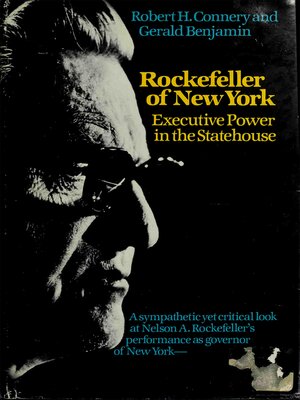
Sign up to save your library
With an OverDrive account, you can save your favorite libraries for at-a-glance information about availability. Find out more about OverDrive accounts.
Find this title in Libby, the library reading app by OverDrive.



Search for a digital library with this title
Title found at these libraries:
| Loading... |
This book is at once a history of Nelson A. Rockefeller's fifteen-year governorship and a balanced assessment of his performance. Reviewing in depth the mojor public policies initiated by the Rockefeller administration in New York between 1959 and 1973, the authors pinpoint the governor's successes and failures, and use them to probe the extent and limits of state executive power in our country today.
Robert H. Connery and Gerald Benjamin appraise the massive efforts that were made across many complex policy areas—higher education, mental hygiene, drug control, low- and middle-income housing, mass transportation, conservation, and land-use planning. During the Rockefeller years, New York maintained its position as one of the nation's most progressive states.
Rockefeller's great strengths, the authors say, lay in the quality of his leadership and in the unflinching way in which he drove the state to confront the major problems of his time. but they are critical of him for trying to do too much too fast. "The failure was one of perspective," they write. "It resulted from Rockefeller's inability to accept the limits of his circumstances, and thus to accept the cumulative consequences of his decisions."
Rockefeller gave Connery and Benjamin complete access to his own papers and to those of the Executive Chamber. In addition, the authors gathered information by extensive interviews with political leaders and state officials of both parties as well as with journalists. They offer a compelling, rounded view of a controversial chief executive and a vigorous account of the ongoing, dynamic process of government.






